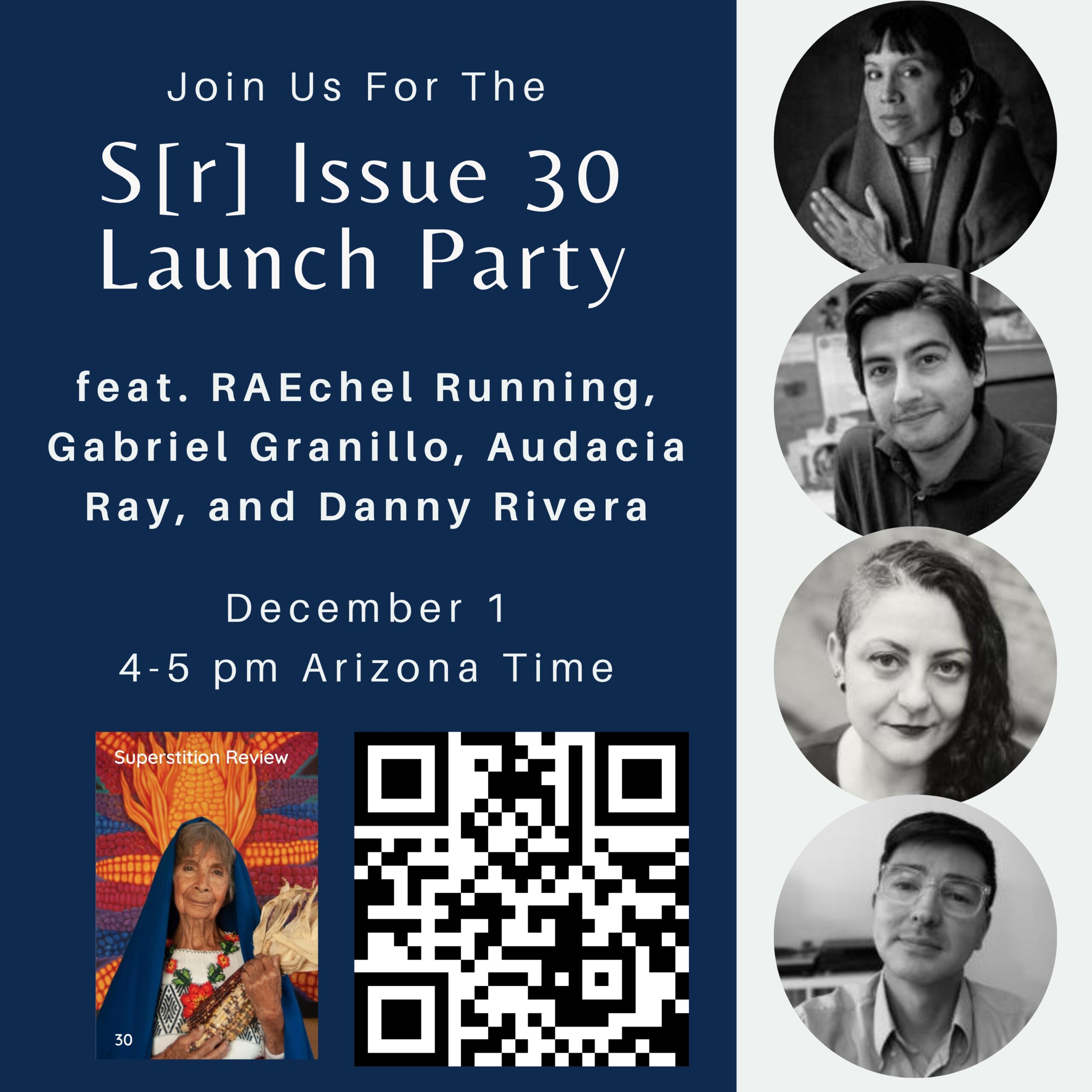

The Online Literary Magazine at Arizona State University

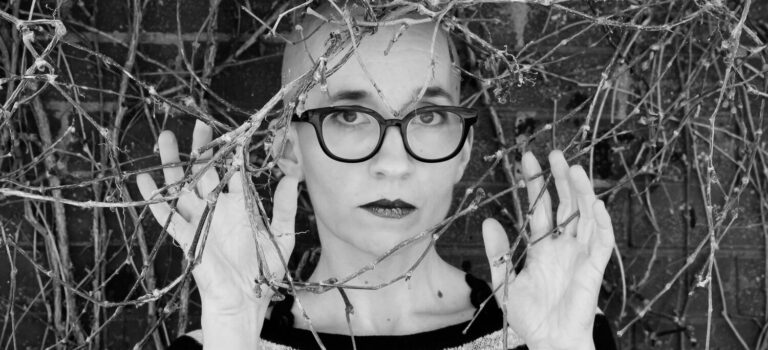
Winner of the Kore Press Institute Poetry Prize, Jessica Lawson’s new poetry collection Gash Atlas is both beautiful and devastating. Combining sexual violence, history, and the speaker’s own complicity, Lawson creates a twisted mirror of our own world. Suffusing this world is the figure “Christopher Columbus,” a villain personifying a long legacy of colonization and current political terror. Columbus’s lines are filled with haunting references: “there is no turning the globe can make away from me… The fake news says there is no / oxygen in space, but anywhere is breathable if you know who to pay.” This is a collection that lingers.
Gash Atlas gives us a map of words—the physical and philosophical language—to navigate a visceral reckoning. History and the present move insidiously through bodies that serve as “soft / places to plant menace.” There is relentless difficulty, complexity, setbacks, toughness, rage. There’s hard humor alongside the exhaustion of everyday fear. Actual and symbolic horror, borne and delivered through the tender precarity of motherhood and violently performative femme-presence, show us the unsustainable cost of institutional force. How intimate it is, how prevalent, how invasive even to one’s own private thoughts—“I have a fantasy of lying down in snow and not being.” Jessica Lawson’s poems, images and stagings take the pulse of existence and offer a bold, intimate conversation that shows us just how close we—humans—are to the ultimate wreck, if we continue charting our world according to the persistent peril of ignorance.
Khadijah Queen, author of I’m So Fine: A List of Famous Men & What I Had On
Jessica Lawson’s work has appeared in The Rumpus, Entropy, The Wanderer, Cosmonauts Avenue, and elsewhere. Gash Atlas is her first book. To learn more about Lawson, visit her website.
Behind every great man/ is too much forgiving/ and an awl of blood” writes Jessica Lawson in Gash Atlas, a collection that erodes the statue Christopher Columbus has erected like a gash in each subjectivity colonized by powerful men. Lawson has given us poems that strike a balance between daring to ask the urgent questions and posing them with the care of one who knows how language often operates as a colonial mode.
Raquel Salas Rivera, author of lo terciario/ the tertiary and while they sleep (under the bed is another country)
To purchase Gash Atlas, go here.
We’re also very excited to share an interview that dives deeper into Lawson’s collection. This interview was conducted via email by our Blog Editor, Brennie Shoup.
Brennie Shoup: What inspired you to create Gash Atlas?
Jessica Lawson: I had multiple moments of inspiration, or at least motivation, that defined this project for me. The first was the 2016 election, which transformed my previous plans to write a manuscript about maps into a project that was much more directly political. I began to accrue poems about the terror of that current moment, as well as the violent histories informing it. The character of an antagonist emerged, who would later become Christopher Columbus. Then a second defining moment came, this time more quietly but perhaps more powerfully. It was when I realized that my book wasn’t just, or only, about Trump, but was about the complicity of my own speaker in the violence he was performing. The book didn’t really come together for me until I did the difficult work of problematizing the voice through which the book itself is coming, letting the book question its own speaker. The book and its composition, in real time, became about strategies for fighting against a system that imbues one’s own subject position. It’s why I gave the book an epigraph that came from a protest slogan by liberal white women, and attributed it to Columbus. My book is about maps, about violence, about Trump, and about white womanhood, and I realized each of these through the act of writing it.
BS: Your collection includes what’s been described as visual and poetic “maps.” Would you be able to discuss why you used the forms you did in this collection?
JL: Visually experimental literature is something I’ve been passionate about for a long time, and is reflected in a lot of the work I’ve already published. I think there is sometimes a misconception that visual literature, or experimental literature more broadly, is necessarily apolitical, and I’d love to see that change. Visual and hybrid poetry gets associated with a messed-up school of poetic elitism that uses “experiment” as a way of looking down upon any readers who can’t (or don’t wish to) understand it. And while there are absolutely writers who create experimental literature that way (those are the boring ones), there is also a rich history of activist writers who use experimentation to activate their texts and their readers, jolting us out of our seats by demonstrating that this is not business as usual. So, that’s a big part of why the forms of these pieces are so important to me. Sometimes, the political needs of the time necessitate breaking away from the forms we’ve inherited. Sometimes, when the world feels like it’s breaking apart, the pages and words need to break with it.
BS: Gash Atlas examines both past and present atrocities, with a particular focus on Christopher Columbus. Could you describe what your research process looked like?
JL: I was researching for this book long before I ever knew I’d write it. I remember years ago learning that Columbus was a terrible navigator, that he thought that the globe was shaped like a pear (or breast) rather than a sphere, that he wholly mistook the place he landed for an entirely different continent. I didn’t know I’d ever be using those bits of information to write poems, but once I decided to include Columbus in the book, this entire set of trivia flooded back in. From there, most of the other research had to do with the present moment I was writing in. I wrote about the United State’s opposition to the U.N. resolution banning the death penalty for homosexuality as it happened. I felt like my book wasn’t just reaching back into a history I’d already learned, but sprinting frantically forward after history as it was happening. The very last poem I put in the book, days before my draft was due to my press, responded to the January 6 attack on the Capitol. I was scared as I wrote it, both about what had just happened, and about having to let go of the manuscript before Trump left office. In a way, it feels like he never did.
BS: Do you have plans for future poetry collections or novels?
JL: I’m currently working on a second book of poems (though, like Gash Atlas, it includes hybrid elements that sometimes complicate its status as poetry). It’s about the body’s relationship to money, sexuality, and trauma. I’m getting pretty far along: the structure is falling into place, and a substantial portion of the poems have been written. Now I’m working on making the space to really look at it and push it toward completion (which is a challenge to do while I’m teaching four classes and raising three children). I’m excited and scared about it, which makes me think I’m where I need to be.

Currently a professor at the University of Virginia in Charlottesville, Rita Dove is coming to give a lecture at ASU’s Tempe campus. Called “An Evening with Rita Dove,” this event will be the highlight of ASU’s second annual Humanities Week. This is a series of special events that celebrate how students and faculty are exploring human adventure across culture, time, and space.
Born in 1952, Rita Dove has won the Pulitzer Prize, the Carole Weinstein Poetry Prize, the Ruth Lilly Poetry Prize, and others. She has written extensively; her most notable works include her poetry collections Thomas and Beulah (which won the Pulitzer Prize), Playlist for the Apocalypse, and Collected Poems 1974 – 2004. Although many of her awards relate to her poetry, Dove has also written essays, songs, a play, and a novel.
Dove’s lecture is free and open to the public; it will take place on Tuesday, October 18, at 7:00pm in the Roskind Great Hall. Go here to learn more and register!



Pictures of Amsterdam University College’s creative writing students
Amsterdam University College’s two creative writing classes are hoping for hands-on experience with literary magazines by reading through Superstition Review’s poetry submissions. They’ve interviewed SR’s poetry editors—Madison Latham and Au’jae Mitchell—to better understand what SR looks for in a poem, how they balance reading submissions between them, and to get to know them. Some responses have been edited for clarity.
Amsterdam University College: What are your criteria for choosing poems?
Au’jae Mitchell: My main criteria for choosing poems is rooted in three questions: Does it incite feelings inside me? Does it feel like the poem has something important to say? And is it unique? A poem or collection of poems that has a positive answer to all three of these questions is one that I contend for and am passionate about. Poetry is an artistic form of expression that ranges in structure and execution, but every poem, despite this diversity, can accomplish absolutely powerful things.
AUC: Do you discuss with one another what you choose or do you split work between the two of you? How long does it take for the two of you to agree? What’s the collaboration aspect between you?
Madison Latham: We use a platform called Submittable. Our founding editor, Patricia Murphy, assigns us poems to read through and vote on. We vote on the same poems and meet with each other—as well as Patricia at the end of September—and discuss the poems we voted yes on.
AUC: Do you consider the poets’ experience or amount they’ve published?
ML: We publish both emerging and established authors. This could range between one and a hundred previously published poems, to someone who is a part of an MFA program.
AUC: Is there a limited number of pieces you can publish in a given issue?
ML: There is no cap for how many authors we will take. In previous issues, it has ranged from 10-15, but we decide based on the poet and the collection of poems they have submitted. We may publish one of their poems, or all of their poems. It can vary, but there is no set number during a reading period.
AUC: To what extent do you edit the poems before publishing them?
ML: We do not. There are no revisions accepted for poetry submissions. If a poem needs revising, we vote against it. We get so many submissions that we always have enough polished poems to publish.
AUC: Is there any content that you refuse to publish?
AM: We do not publish harmful, disparaging, or discriminatory content.
AUC: How do you decide on the order in which the poems are published?
ML: Poetry is published in the issue alphabetically by the author’s first name. Each author receives a page that includes their bio, headshot, selected poems, and an audio recording of those poems. Issue 29 demonstrates how the poetry section is organized.
AUC: How many submissions do you get in a submission window?
AM: This semester we received more than 422 submissions in poetry. These were narrowed down to 55 submissions to consider for Issue 30 of Superstition Review.
AUC: Do you write poetry?
ML: I do! I finished my capstone in poetry at ASU last semester (Spring 2022). I still write poetry in my free time, but I also enjoy reading work by other poets—which is why I wanted this position.
AM: I do write poetry! I write poetry in my free time between research for my Master’s program and my narrative writing. It is very hard for me to sit down and write poetry, so most of the poetry I write I jot down in my notes at spontaneous times during any given day and build upon that initial thought.
AUC: Is there anything you’d like to add?
ML: Thank you for your interest in SR and our work! We accept submissions from any creative writer that is not an ASU undergraduate. Our submission period for Issue 30 has closed, but we will begin accepting submissions for Issue 31 in January 2023.
AM: To any aspiring poets, writers, or artists, I encourage you to consider submitting to Superstition Review. And to all creative minds out there considering putting themselves and their work “out there” for consideration, I believe in you and what you can do!
AUC’s creative writing classes consist of 25 students, each with different majors and many from international backgrounds. Later, they will be selecting poetry from Superstition Review‘s submissions, which will appear on our blog!
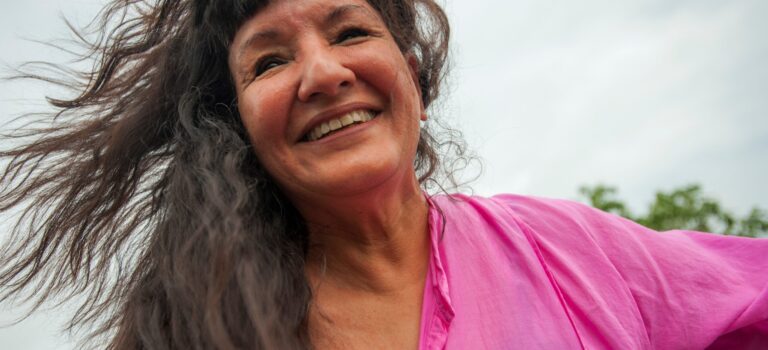
Author of House on Mango Street and a dozen other books, Sandra Cisneros has published a collection of poems for the first time in twenty-eight years. Woman Without Shame, published by Knopf, details Cisneros’s journey to embracing her identity as a woman and an artist through song, elegies, and declarations. Using both Spanish and English, Cisneros is both blunt and humorous in her collection.
Sandra Cisneros is currently traveling all over the US, and she will be coming to the Poetry Center in Tucson, AZ, November 9-12. Find a complete list of locations here!
Glorious . . . Cisneros candidly ticks through past lives and lovers with an approach that isn’t concerned with what people will think. . . . As in her former works, Cisneros masters scene-setting, and story, usually with a humorous angle. . . . Woman Without Shame is brave and beautiful.
Meredith Boe, Chicago Review of Books
Sandra Cisneros has won numerous awards throughout her long career as a writer: the Before Columbus Foundation’s American Book Award, the Mountains & Plains Booksellers’ Award, and others. To learn more about her, visit her website.
These lush, narrative-lyrics are written with a vivid wild girl spirit, filled with unbridled love, angst and joy! This book is a page-turner and should not be missed!
Marilyn Chin, author of Portrait of the Self as Nation
To purchase Woman Without Shame, go here.


Equatorial is a literary magazine dedicated to publishing talented undergraduate poets. Its founding editor, Benjamin Faro, is pursuing his MFA in Poetry at Queens University of Charlotte.
Issue One of Equatorial featured five outstanding students and focused on themes of exploration. Submissions for Issue Two of Equatorial will be open until November 30, 2022. Read Equatorial‘s guidelines and submit here!
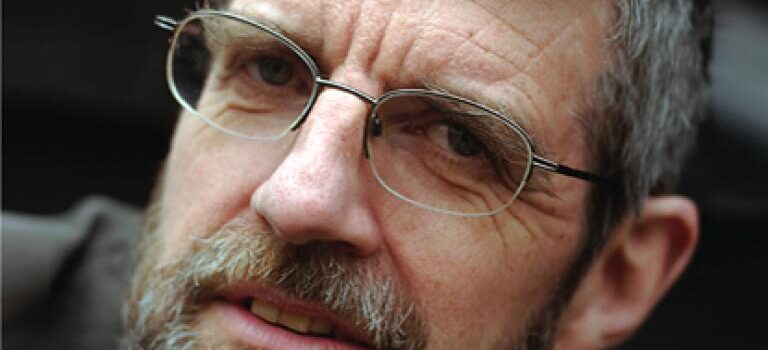
Congratulations to Philip Gross for his upcoming poetry collection The Thirteenth Angel, published by Bloodaxe Books. Coming November 17, 2022, Gross’s collection examines patterns in the world around us and also within ourselves. It teeters between the before and after of the pandemic years, focusing in the opening sequences on almost-aerial views of London streets and Europe’s motorways. It ultimately reveals that “if there are angels, they are nothing otherworldly, but formed by angles of incidence between real immediate things.”
Moving from island to island, continent to continent, Between the Islands is concerned with memories, with resonances throughout time, but also with emergent dangers; ecological fears and the rising islands of refuse accumulating in our oceans.
Poetry Book Society Bulletin, Spring 2020 [on Between the islands]
Philip Gross has written over twenty books of poetry and won a number of awards, including the TS Eliot Prize for his book The Water Table. To learn more about Gross, visit his website.
Great poetry is like walking on water. In this paradoxical, humane collection, Philip Gross achieves that miracle.
Polly clark, The Guardian [on the water table]
To preorder The Thirteenth Angel, go here.
Philip Gross’s poem “Survivor” appeared in Issue 6 of Superstition Review.
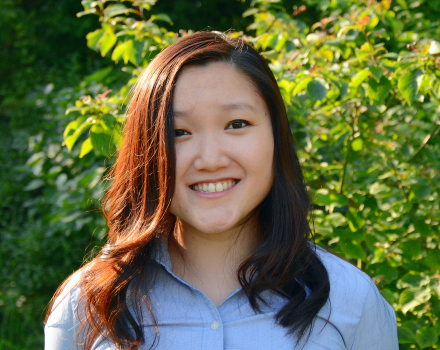
Congratulations to Su Cho for her debut poetry collection The Symmetry of Fish, published by Penguin Books. Winner of the National Poetry Series, Cho’s collection explores immigration, family, and language. At the heart of the collection is a coming-of-age narrative, and Cho offers insights about how language changes and condenses over generations, not diluted but distilled.
Each year, the National Poetry Series chooses five poetry manuscripts to publish, with the goal of increasing the number of poetry collections published and available. Paige Lewis, author of Space Struck, chose Su Cho’s manuscript for publication.
In her debut collection, The Symmetry of Fish, Su Cho presents us with a speaker who attempts to separate seemingly unlike things: the religious and flippant, the fishbone from the flesh, herself from her memories. In one poem Cho writes of a desire ‘to isolate these moments / pipette them into test tubes / whirl them in a centrifuge.’ Lucky for us, this turns out to be an impossible endeavor. Instead, we are graced with a glorious combination of the incompatible…
Paige lewis, author of Space Struck
Su Cho’s essay “Cleaving Translation” won the 2019 Wabash Prize in Nonfiction. She was a finalist for the 2019 Black Warrior Review Nonfiction Contest and nominated for the Pushcart Prize. To learn more about her, visit her website.
This poetry is quite marvelous. All hits no skips. I was incredibly moved by these poems about family and immigration and the relationship we have to languages. I particularly loved the poem about translating for parents. I look forward to more from Su Cho.
Roxane gay, author of Hunger
The Symmetry of Fish will be available October 11, 2022. To preorder the collection, go here.

Congratulations to Lynn Mundell for her new chapbook Let Our Bodies Be Returned to Us. Winner of Yemassee Journal’s 2021 Fiction Chapbook Contest, Mundell’s chapbook is a vivid, visceral look at womanhood. Comprised entirely of flash fiction pieces, Mundell proves she is a master at reaching profound depths with only a few words.
Although Let Our Bodies Be Returned to Us focuses on women, there is no one type of woman Mundell writes about. Young and old, idealized and flawed—she writes with empathy about sisters, mothers, and women who simply are. No two stories are the same: Mundell writes as an unborn, reincarnated baby in her first story “Again,” and later she writes from Mona Lisa’s point of view in “Smile, Lisa.” Her final piece, “Let Our Bodies Be Returned to Us,” is a mesmerizing capstone to a brilliant chapbook. Let Our Bodies Be Returned to Us is perfect for those looking for a collection that’s short but poignant.
The wit, warmth, and skill of this writer struck me immediately. These stories are smart but not smart-alecky, quirky yet polished, broad in their emotional appeal and sharp in their resonance. Again and again, I was taken by surprise—by the originality of the prose, the ingenuity of each scenario, the impact delivered by such a small number of words. I felt for these characters—the sisters in “Cloise,” about to be split apart, the lonely boy in “Mother and Child,” the broken family in “Big Baby,” the pregnant women who refuse to dim their hopes in “Our Bright Lights On.” Though many of these stories are heart-rending, I also found myself smiling, uplifted. This collection and this writer are ready for prime time.
Mira T. Lee, author of the novel Everything Here is Beautiful
Lynn Mundell is a short story writer, publisher, and editor. She and Grant Faulkner founded 100 Word Story in 2010, and her story “Again” appeared in Issue 17 of Superstition Review. To learn more about Lynn Mundell, go to her website.
To purchase Let Our Bodies Be Returned to Us, go here.
We’re also very excited to share an interview that dives deeper into Mundell’s chapbook. This interview was conducted via email by our Blog Editor, Brennie Shoup.
Brennie Shoup: Much of your work is flash fiction. Could you talk about what draws you to this form, and how flash fiction appears in Let Our Bodies Be Returned to Us?
Lynn Mundell: Flash fiction enables us to tell our stories in intimate ways—a secret whispered into an ear; a tale told over a quick warm drink. We boil down the story to its essence, leaving the tea leaves or coffee grounds for later scrutiny. For me it’s been the marriage of my original writing as a poet with my lifelong love of a good story. All of the stories in my chapbook are flash. They include 100-word stories in triptychs, some using numbering and headings for short sections, traditionally plotted longer flash, and some hybrid pieces where poetry and fiction congregate. The first story in the collection is called “Again,” about a baby born over and over and over again that was inspired by a black and white photo of a happy young family. It was published in Superstition Review and remains one of my favorite stories to have told and to read to others, so thank you, Superstition Review!
BS: The original “Let Our Bodies Be Returned to Us” was published in 2018 in Booth. Could you talk about what inspired the piece and how it ended up as the title for your chapbook?
LM: “Let Our Bodies Be Returned to Us” was actually inspired by a very small airplane seat on a flight from Phoenix to Santa Fe! Where the rest of that piece came from is a mystery to me, but there must have been a lot of feelings about how women’s bodies are used and used up that fed into it. I definitely tapped into everything from being hit on when I was younger to breastfeeding my kids. I wrote it at a writing retreat hosted by Meg Tuite and Robert Vaughn that encouraged crossing the border between poetry and fiction writing. I recommend working with these writers or just any sort of a change of scenery for a way to feel freed and inspired to produce new things. I sometimes camp out in a new location for four or five days to unplug and have found my best stories come from these times where I am seeing new things while also working in total isolation. When it was time to organize my stories, “Let Our Bodies” really encapsulated the theme for the whole book, plus it made for an intriguing book title that could also provide a lot of fodder for the cover illustration.
BS: Could you discuss the main themes of your chapbook? How have these themes developed over your career? Do you find yourself writing about the same ideas over and over again?
LM: The theme of the book is women’s bodies—what they are capable of, how they are viewed and objectified, as sources of comfort and conflict, and how ultimately women own them. The book is organized from birth to end of life, and each piece is from a female point of view. The theme surprised me as I sorted through my work looking for the common thread. I have other stories I like that did not fit into the collection thematically at all, and one of the most difficult things about creating the collection was having to give these pieces the heave-ho. I have written everything from ghost stories to creative nonfiction about my early teens living in Iran. Frankly, writing wise I am all over the map.
Typically I write a piece and sort of hope that there will be something cohesive among a few years of my work, but there isn’t always—which is why it took many years for this book to come about with its theme that finally surfaced. I admire writers who can set out to write to a theme and have a collection they are purposefully working toward. I was recently trying to write connected fables about animals, but have thus far only created one I like, about a mother and baby elephant that was published in The Masters Review. I’d like to keep trying on that, but may need to expand the theme to just fables in general or even fables and fairy tales.
BS: Do you have plans for future chapbooks, short story collections, or novels?
LM: I would love to write more books. But right now I am just writing and we will see where that goes. During the pandemic I have sort of gotten off the script of life in general, and in writing toward a publishing objective of any kind, with one thing being very different from the next. This has included a long fairy tale published in Gone Long, a book review for a friend’s new collection in Necessary Fiction, a four-part piece about fishing with my father in Under the Gum Tree, a creative nonfiction about family depression written to a painting in The Ekphrastic Review, a longer mystery in collaboration with artist Merrick Adams in 7x7LA, and others that are pushing what I typically do. At the end of this year I’ll look everything over and see if there is a pattern for a new book or one thing that I like enough as a starting point for a new book. I will say that I have continued to find great joy in writing as well as reading the incredible work that is out there lately.
What I love about writing is the wonderful sense of freedom. In our daily lives we are constrained by the demands of work, family, duty, society, finances, and so forth. But in writing we can leave all of that behind to explore anything with total abandon.

Congratulations to Eric Tran for his new poetry collection Mouth, Sugar, and Smoke, published by Diode Editions. Winner of the 2021 Diode Editions Full-Length Book Prize, this collection “grieves a lover lost to addiction and also swims in the intoxication of desire.” Tran explores themes of grief, lust, and queerness using a variety of poetic forms. Although not limited to one type of poem or one specific subject, Tran’s poetry remains united to create a cohesive piece. Poems selected for the collection are visceral and candid as Tran dives into his own emotions, writing “I’m lousy and bloated / with love.” His poetry is perfect for those searching for a deep discussion of intimacy.
Wounds, here, are not ornamental. Tenderness, here, is as restless and resilient as pain. The poems refuse transformation, superficial resolutions. Instead, the language—unsparing, striking—attends to addiction and death with grace, awe. The emotional complexity is mirrored structurally: the lines waterfall and halt, a sonnet crown jolts awake the mind, sentences simmer with lyrical momentum. Eric Tran’s second book is heart-rich and deftly written—the poems will stay with you long after you finish reading it.
Eduardo c. corral, author of guillotine
Eric Tran is a queer Vietnamese writer and physician. He currently lives in Portland, Oregon. Mouth, Sugar, and Smoke is his second book of poetry, and his work has appeared in RHINO, 32 Poems, the Missouri Review, and elsewhere. To learn more about Eric Tran, go to his website.
I resent no one / the instinct to run’ writes Eric Tran in his brave and beautiful Mouth, Sugar, and Smoke. But this is a poet who never runs. In fact, he pushes deep into the raw center of desire, admitting ‘I’ve wanted your picked-at / scab, your broken voice through a / morning-night call.’ This is a book of lust and brokenness, of ‘suffering as hot / and clean as a pistol’s mouth.’
Aaron Smith, author of The book of daniel
To purchase Mouth, Sugar, and Smoke, go here.
Eric Tran’s poem “Untitled (Portrait of Ross in L.A.)” appeared in Issue 18 of Superstition Review.